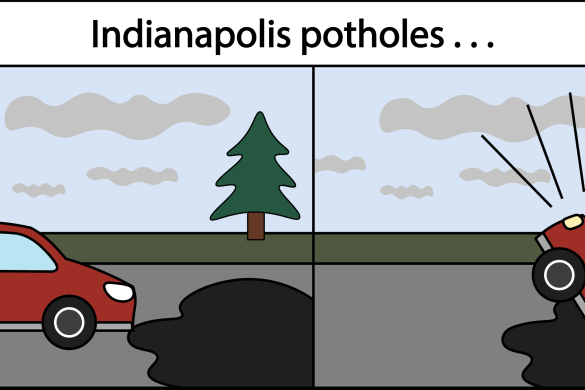I was shocked to discover that the United States Department of Agriculture had deleted thousands of nationwide animal welfare records from its website without so much as a warning. According to nationalgeographic.com, the USDA got rid of inspection records and annual reports for commercial animal facilities such as zoos, breeders, factory farms and laboratories, which had been posted publicly for decades. On many occasions, these reports have helped to reveal cases of animal abuse and mistreatment that likely would have gone unnoticed.
For example, when Mother Jones did a yearlong investigation of Ringling Bros. Circus, the publication found that the elephants were kept in cramped living conditions and chained and whipped for years. The website said that many of the elephants even had “infected wounds and untreated diseases.” After the story was released, people signed petitions to remove the elephants from the circus. Ringling said that it would discontinue using touring elephants in 2016, then later announced that the circus was being shut down permanently in January 2017. None of this would have been possible without the use of the animal welfare records from the USDA website.
A statement from the USDA cites privacy issues as the primary reason for deleting the records. As a journalist, I see this as an illegitimate reason to remove something that was once public record. This keeps journalists, animal welfare advocates and the public in general in the dark.
An organization’s privacy is not nearly as important as having access to records that could keep animals from being abused and mistreated. Why should an organization be so concerned with its privacy if the organization is doing nothing wrong? The main reason the records were on the website was to keep an eye on the organizations that either could become abusive or already were abusive toward their animals.
The only way the records can be recovered now is through official requests made under the Freedom of Information Act, according to nationalgeographic.com. FOIA requests are often tedious and can take months to process. This could be at the expense of an animal’s life or prolonged suffering. Previously, anyone could quickly look up the organization’s records on the USDA website. Using FOIA requests may prevent someone getting to the animals in time, before it’s too late.
The situation has created quite an uproar within the animal-rights community, and many groups initiated legal action against the USDA. The Humane Society of the United States argued that the “removal of records violates a 2009 settlement between the two parties.”
Groups such as PETA, the Physicians Committee for Responsible Medicine and Born Free USA also have filed a joint lawsuit against the USDA. The argument is that the USDA is hindering these groups’ ability to identify violations of the Animal Welfare Act.
Following backlash from these organizations and the public, the USDA has subsequently decided to post certain records back on the department’s website. According to the USDA’s statement, they will repost only the annual and inspection reports of research institutions and some federal research facilities. This is only a small batch of what once appeared on the website and is insufficient.
A full restoration of these records would mean that the USDA would have to post thousands more. While the partial restoration is a good start, complete transparency and accessibility of these records is essential for keeping zoos, breeders, factory farms and laboratories in check when it comes to the preservation of animal rights.





